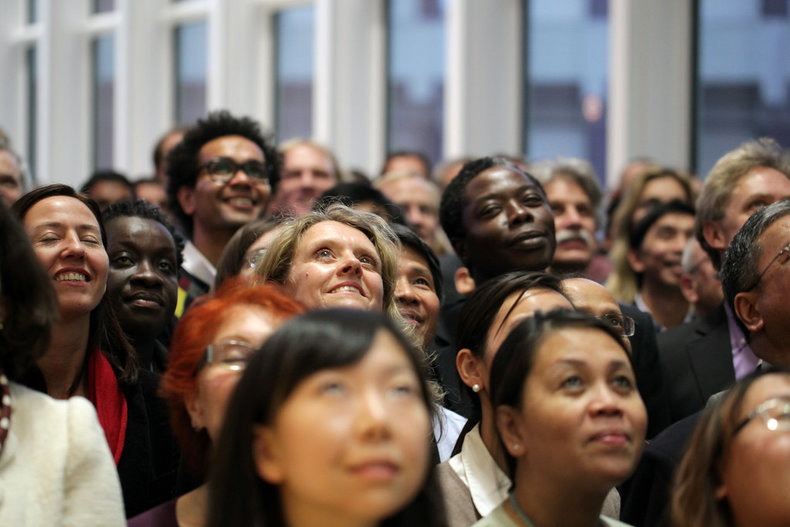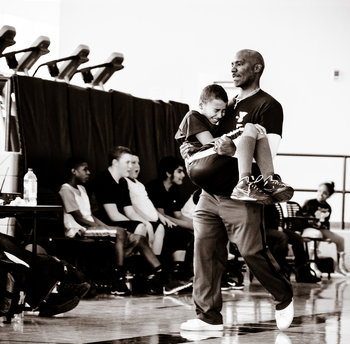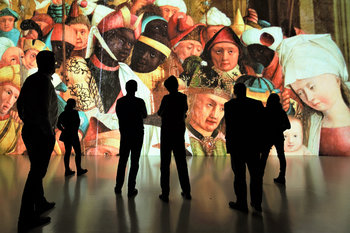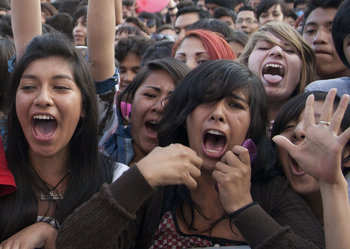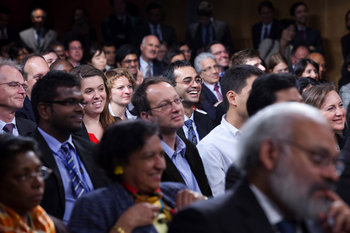|
| |
Equality is the principle that all people be treated the same, particularly in terms of status, rights, and opportunities. This can be applied to systems such as a society and individual behavior. The following are common types of equality.
Political EgalitarianismThe principle that all members of a society have equal standing in terms of political power and influence. This principle is the basis for democracy and clearly states that individuals or entities are not allowed to buy extra influence.Equality of OpportunityThe principle that people be judged based on their merits as opposed to their identity such as race, gender and age. This allows for competition, freedom of choice and hierarchies based on merit.
A society that allows for competition and choice, usually with a system of equal opportunity, that uses taxes on the rich and middle class to provide a minimum quality of life for all members of society in areas such as basic income, education, health care and environmental justice.Equality of OutcomeA system whereby a bureaucracy evens things out so that all recognized groups succeed equally. This limits freedom of choice and fair competition with a bureaucratic elite that decides who gets what advantage, opportunity, position, role, recognition, result and compensation based largely on identity factors. For example, a math class where administrators fudge results such that each race and gender end up with the same median grade. In this case, an individual's grade may differ greatly from their actual performance. Communist SocietyA society that enforces common ownership of capital and complete equality such that everyone is given exactly the same conditions. This requires the state to centrally plan every aspect of things such that competition and freedom of choice are severely limited. This tends to result in low happiness, efficiency and productivity.NotesIn many ways, equality of outcome is the opposite of equality of opportunity. As such, the word equality is commonly used to mean very different things. Characteristic | Equality of Opportunity | Equality of Outcome | Freedom | Creates freedoms. | Restricts freedoms by placing people into categories based on things they can't change such as race. | Competition | Allows for open competition. | Restricts competition. | Treatment of Identity | Treat everyone the same. | Treat everyone according to their identity. | Economics | Supports capitalism, social market economies and other systems that depend on competition and freedom of choice. | Resembles communism in its suppression of competition, creation of an bureaucratic elite and pursuit of sameness. |
Equality of outcome should not be confused with programs that give support to disadvantaged groups -- it is literally a system of forcing results to be the same. In other words, it doesn't necessarily address the root cause of problems but forces all results to be equal based on identity.Equality of outcome as a system should not be confused with equality of outcome as a measurement of how well different groups are doing within a society or system.|
Type | | Definition | The principle that all people be treated the same, particularly in terms of status, rights, and opportunities. | Related Concepts | |
Society
This is the complete list of articles we have written about society.
If you enjoyed this page, please consider bookmarking Simplicable.
ReferencesLe Grand, Julian. The strategy of equality: redistribution and the social services. Routledge, 2018.Sen, Amartya. "6. equality of What?." Globalization and International Development: The Ethical Issues (2013): 61.Roemer, John E. "Equality of opportunity." The New Palgrave Dictionary of Economics: Volume 1–8 (2008): 1811-1816.Roemer, John E., and Alain Trannoy. "Equality of opportunity." Handbook of income distribution. Vol. 2. Elsevier, 2015. 217-300.Okun, Arthur M. Equality and efficiency: The big tradeoff. Brookings Institution Press, 2015.
The definition of society with examples.
The definition of freedom of movement with examples.
The definition of the right to play with examples.
The definition of industrialization with examples.
The definition of urbanization with examples of its causes.
The definition of consumer society with examples.
The definition of middle class with examples.
The definition of cultural heritage with examples.
The definition and common characteristics of postmodernism.
The definition of norms with examples.
The difference between shy and reserved behavior explained.
The definition of social construct with examples.
The definition of broken window theory with examples.
The definition of mores with examples.
The definition of humility with examples and counter examples.
A list of examples of culture.
The definition of duty with examples.
The definition of cultural diffusion with interesting examples.
The definition of tolerance with examples.
TrendingThe most popular articles on Simplicable in the past day.
Recent posts or updates on Simplicable.
Site Map
© 2010-2023 Simplicable. All Rights Reserved. Reproduction of materials found on this site, in any form, without explicit permission is prohibited.
View credits & copyrights or citation information for this page.
|
